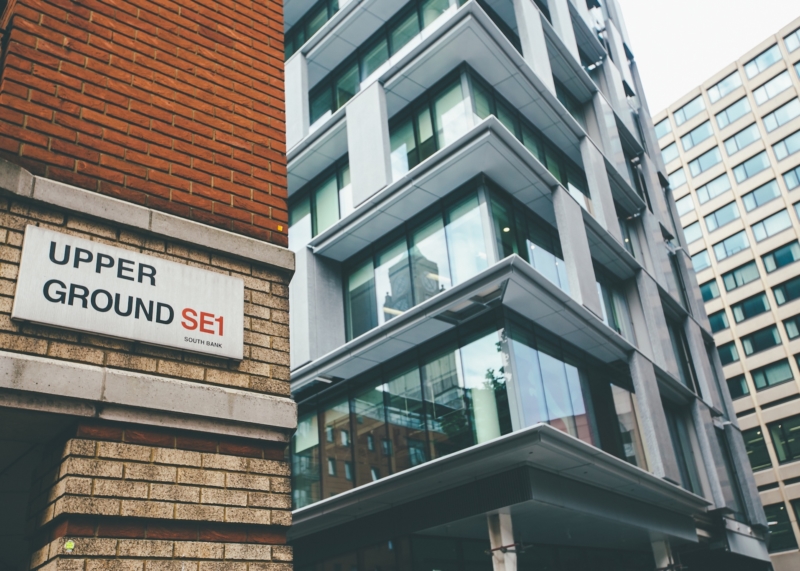The first time David Ball toured London’s WeWork South Bank, the building was still a construction site. No matter how much he stared at blueprints and walked around floors still lacking furnishings, lights, or even walls, he had trouble picturing this new kind of workspace.
“I couldn’t see it,” says Ball, founder of the cutting-edge creative company BrandFuel. “I didn’t get it at all.”
He had gone so far as to negotiate space with another company, but his contact at WeWork urged him to take one more look. The building was nearly finished by this time, and Ball was bowled over. He realized that WeWork wasn’t merely a place to move his company.
“WeWork has actually been transformative for us in many ways,” says Ball. “It changed the culture of how we worked.”
That was two years ago—October 2014, to be exact—when South Bank became the first WeWork location to open in London. Today, there are 11 buildings spread out around the city, providing space for a total of 10,000 members.
But Ball and other people we spoke to say the South Bank location is something special. Many companies have called this modern building with the geometric façade their home from the day it opened. It’s a tight-knit community, they say, where most members know their neighbors, if not just about everyone on their floor. When somebody hosts an event, everyone is usually on the invite list.

Ball says it’s more than the building—it’s the people who work inside. With the help of the staff at WeWork, Ball created a truly collaborative space for his nearly 50 employees. He did away with most dedicated desks, allowing staffers to be on the move, huddling with others who were working on a particular project.
“I was terrified what the older members of the company—the people between 45 and 60—would think,” says Ball. “But they were the quickest to adapt. It was just amazing.”
Eyad Zahra, currently WeWork’s director of community training and support in Asia and the Pacific, was on the team that helped open South Bank. He says one of the most gratifying parts was helping Ball and his team come up with the right design for BrandFuel.
“At first they wanted us to modify the space and make it more closed off, but once they moved in, they decided to actually keep everything open,” Zahra says. “They preferred the feeling of being more in the community, rather then being closed off.”
Ball and other members who moved in during the first few weeks say WeWork wasn’t like any of the other coworking spaces in London. Instead of endless rows of desks, WeWork provided flexible spaces: private offices, conference rooms, and common areas where they could mingle with other members.
Nearby are the offices of Big Sync Music, which definitely takes advantage of the view. Andrew Stafford, the company’s co-founder and creative director, says they use their office as an impromptu concert venue.

“We had singer Nick Mulvey perform here,” Stafford says. “We pushed all the desks back, making a space for the audience. Through those big windows behind him, the sun was coming down as he was playing. People loved it.”
Stafford says the space for the eight-member team, created by combining two smaller offices, is perfect for Big Sync. He says the company’s last office, borrowed from another company, wasn’t ideal.
“We’re a music company,” he says. “We make quite a bit of noise. Lots of record companies come by with musicians they want us to meet. It’s hard to do that without a space of your own.”
And Big Sync has grown a lot during its two years at South Bank. It’s nearly tripled its staff in London and has opened offices at New York’s WeWork Nomad and Amsterdam’s WeWork Metropool.
Felix Jackson, founder of the digital health care company medDigital, has also been a member since South Bank opened its doors. He says WeWork’s “brilliant” business model has definitely helped his company move to the next level.
“Being a part of WeWork put our company on a different trajectory,” he says. “It gave the impression to all of our clients that we had made it.”

Not only that, WeWork has helped him attract the best employees.
“People want to work in a cool office,” Jackson says. “Being in a WeWork space makes it easier recruiting and retaining people. All the important things for my team are right here.”
Alex Short, founder of Old St Labs, says his company was among the first to tour South Bank. WeWork, he says, is “very much a part of our DNA.”
“That whole founder-to-founder thing sets WeWork apart,” says Short. “We are learning from so many other people here because they are doing the same stuff. More often than not, they’ve gone through the same process as us. Instead of scratching your head or looking up info on the internet, you just ask someone in the next office.”
The strategy has worked for Short, who developed a suite of products that help large companies collaborate with their strategic suppliers. Old St Labs has grown considerably in the last two years. This month, Short has opened additional offices in San Francisco’s WeWork California St. and Montreal’s WeWork Place Ville Marie.
The welcoming and low-key vibe is part of the attraction at South Bank, says Short. He says that clients are excited about visiting the office because it’s so different from the corporate culture they’re used to encountering.
“Our firm deals with a lot of large corporations, including two of the top 10 in the FTSE 100,” says Short. “When we show them the relaxed atmosphere at our WeWork office, it makes us stand out from other companies they deal with.”
Photos: Oscar May




